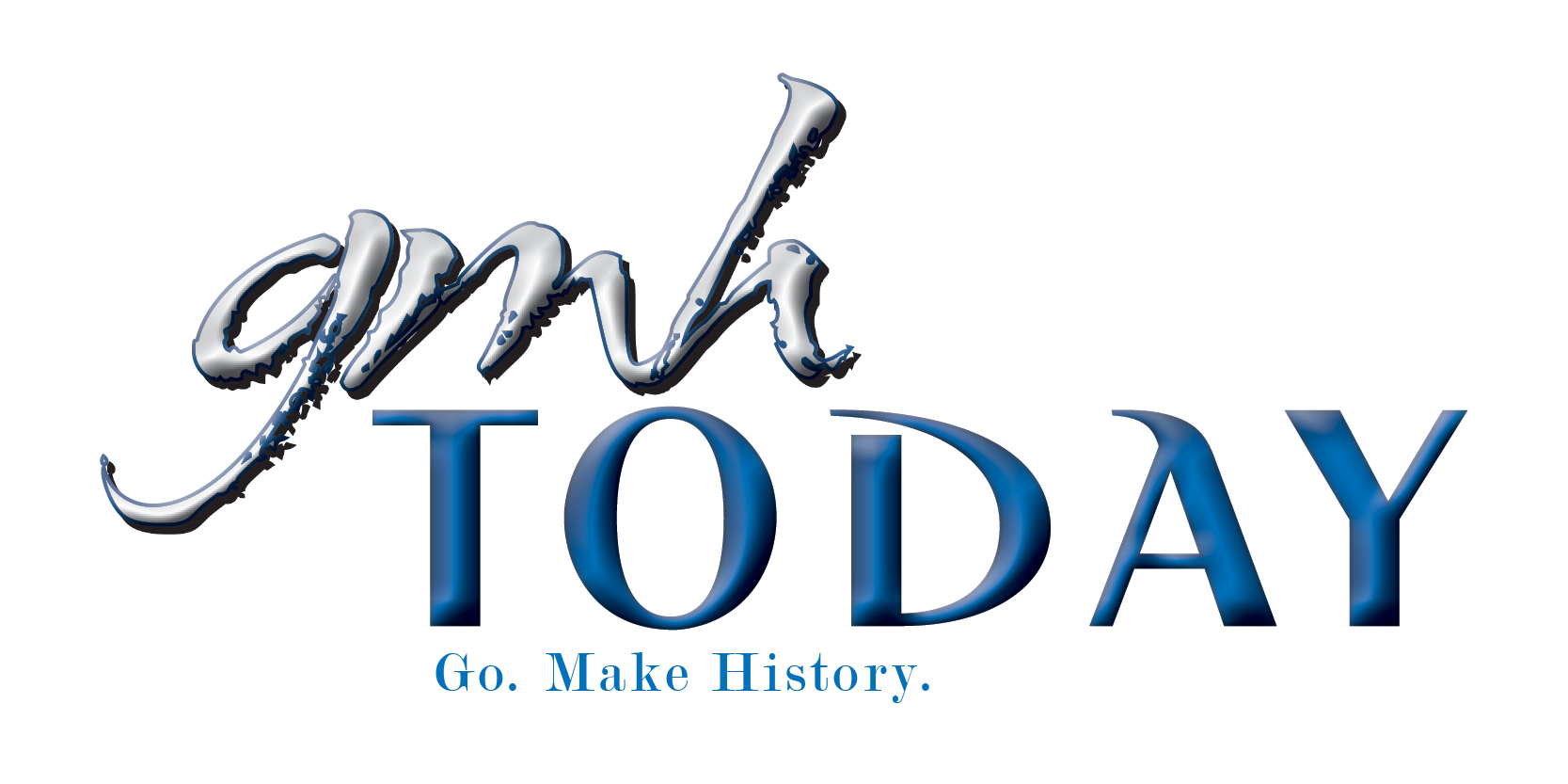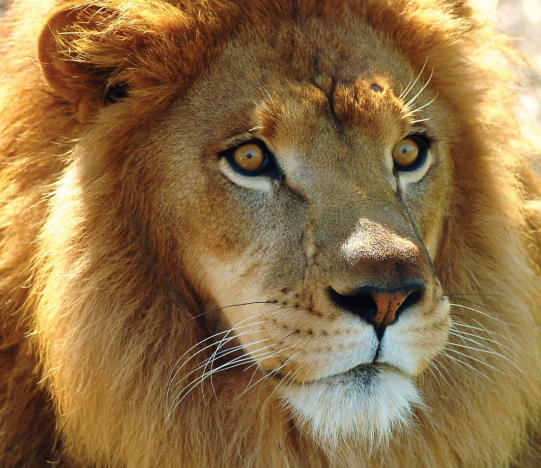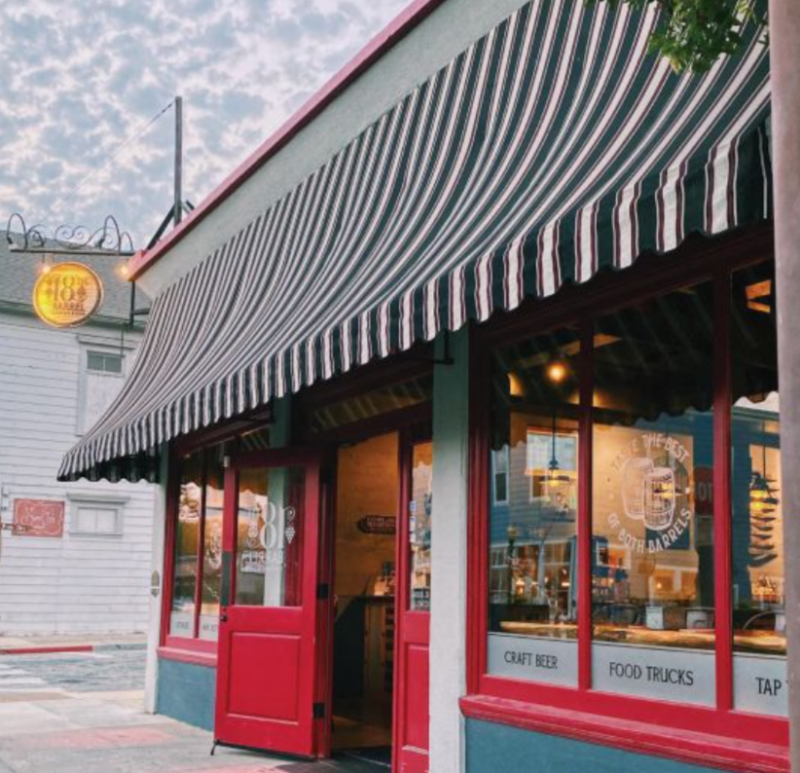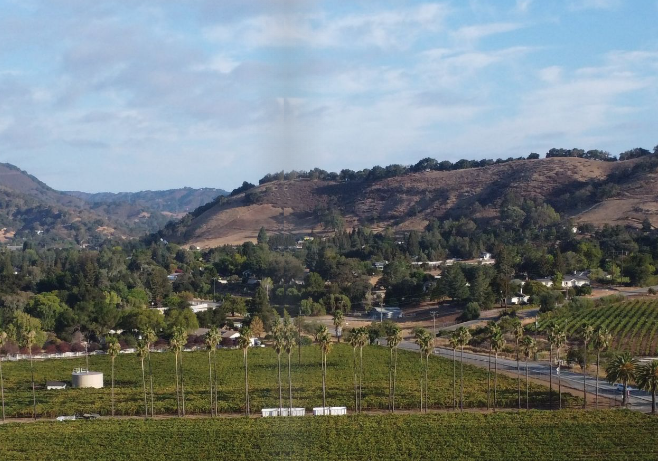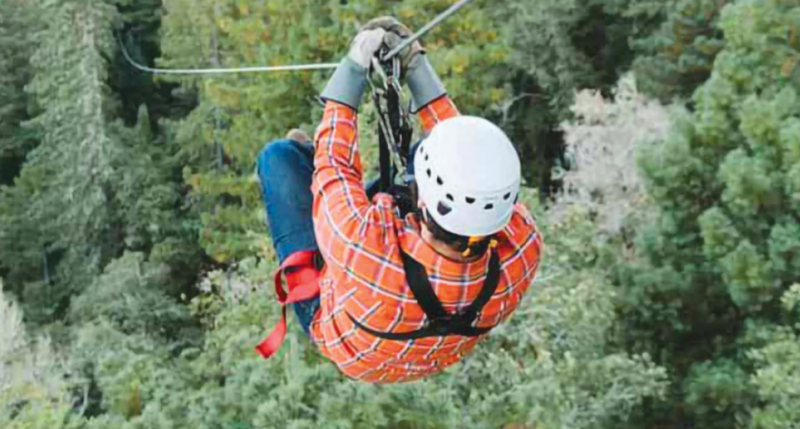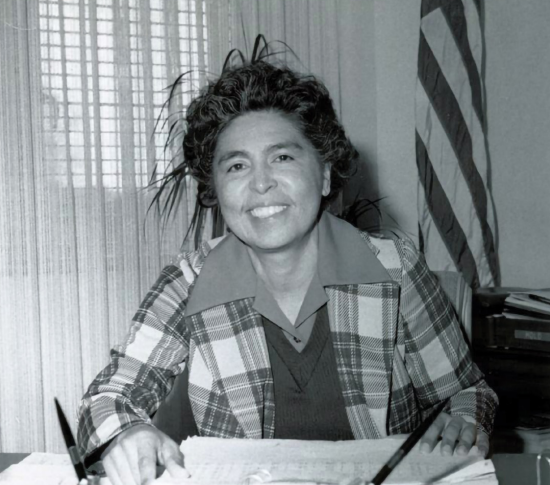Heart of a Lion
Monterey Zoo’s Charlie Sammut
When Life Gives You a Lion, Make a Zoo!
When Charlie Sammut arrested a suspect in 1983, he had no idea it would set him on the path to opening
a zoo. Back then, he was just a police officer in Seaside who also happened to love animals. He already cared for dogs, cats, horses, pythons, parrots, skunks, and many other animals, so when the suspect told him he had a pet mountain lion that needed a new home, adopting it was a no-brainer.
“That was back in the day when it was legal to do something that foolish,” Sammut clarified. He recognizes that owning a wild animal requires experience, proper facilities, and the financial means to provide adequate care, and years later he would sit on the Fish and Game Advisory Committee to make
owning wild animals as pets illegal. But at the time there were no laws in place to prevent him from adopting the mountain lion, who he named Samson.
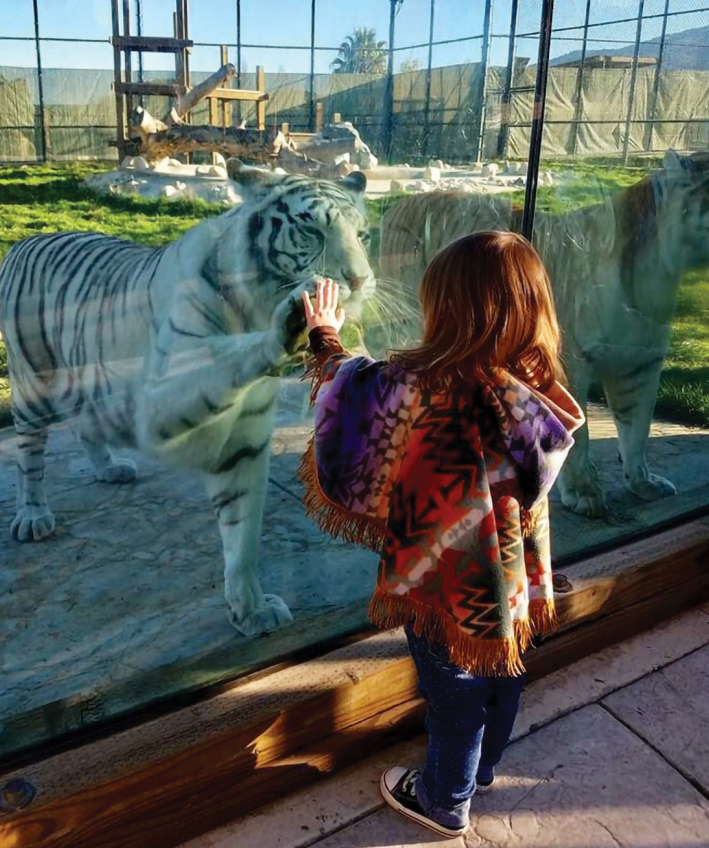

The longer Sammut was in the entertainment industry, however, the more he became bothered by the treatment of the animals. “I wasn’t particularly fond of how the animals were received and how they were treated afterwards,” he explained, “It just wasn’t a place for the animals after the film was made, and that didn’t sit right with me.” When it became clear that the industry wasn’t going to change its treatment of the animals, Sammut left and began exploring the idea of turning Vision Quest Ranch—the home for all of his animals—into an actual zoo.
Vision Quest Ranch is also the home of Vision Quest Safari Bed & Breakfast, where guests can stay in an African tent style bungalow with lions and tigers roaring just yards away, enjoy continental breakfast, and meet and great the “Wild Things.” The road to making the zoo wasn’t easy, but Sammut was fortunate to have the support of the Monterey and Salinas communities, who made generous donations and also contributed their time, labor, and materials for the animal exhibits. In February 2020, the Monterey Zoo officially celebrated its grand opening.
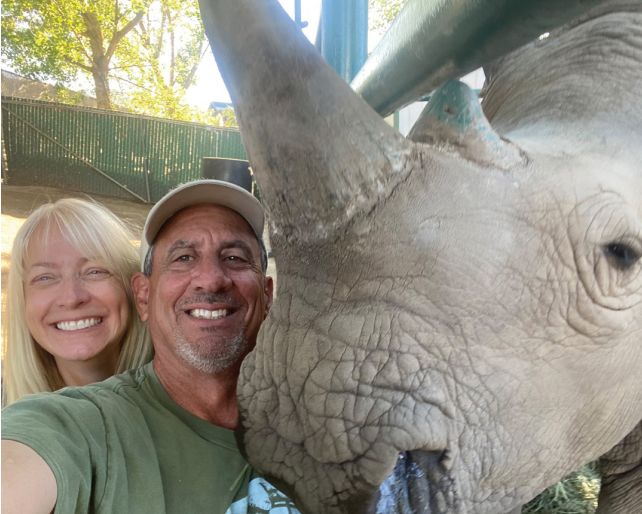

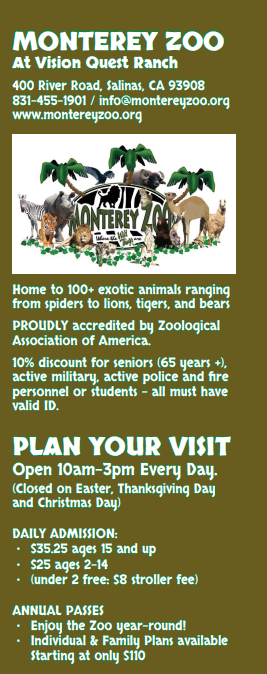

As natural habitats continue to be destroyed by deforestation, urbanization, pollution, and poaching, Sammut sees zoos as an insurance policy for endangered species. “If animals are left to just the wild, as the extremist groups think it should be, we will continue to lose these species,” he said. Ideally, Sammut
would love to see animals return to the wild, but until countries find ways to curb habitat destruction and poaching, he thinks it’s irresponsible to leave animals alone to solve a man-made problem. In the meantime, his zoo will continue to take in rescued animals from sanctuaries and give them good homes.
Ultimately, Sammut hopes his zoo will inspire others to love and appreciate animals. He admits that if a place like the Monterey Zoo existed when he was younger he probably wouldn’t have gotten so many animals, and he hopes his facility can be a place where people can enjoy animals without needing to own them themselves. Sammut also thinks sharing the animals with the public will boost conservation efforts. “I don’t think you can embrace the species until you’ve embraced the individual. That’s what we hope to accomplish here,” he said.
Although Sammut didn’t know he’d one day build a zoo, he’s proud that he has. He has dedicated his life to the animals at the Monterey Zoo and he’s certain anyone who visits will see that for themselves.
